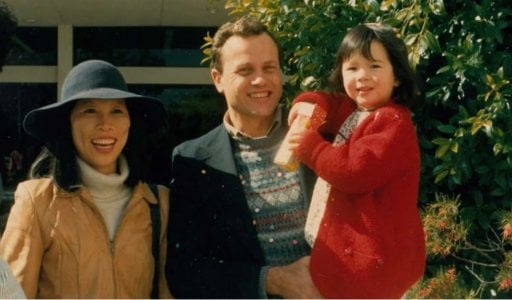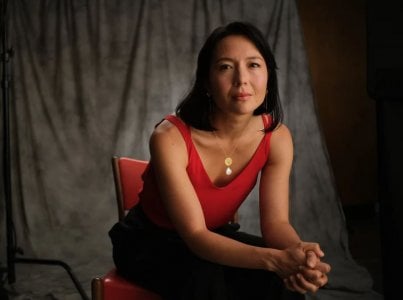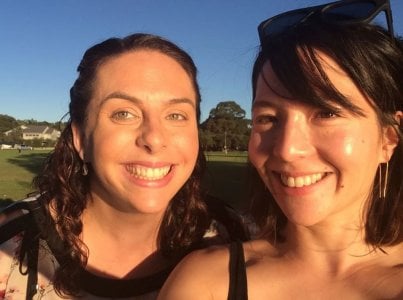A woman’s life was turned upside down when she discovered a family secret
- Replies 6
We've all heard the phrase 'life can be a rollercoaster', but for some of us, that analogy is almost an understatement.
And for Journalist Sarah Dingle, her life had never been the same once she learned the truth about her father.
Sarah was only 27 years old when she learned that the dad who raised her was not her biological father.
Her mum told her – in a nonchalant way – that she was actually donor-conceived via an anonymous sperm donor.
Sarah didn’t believe her mum at first. She thought that her mother was just telling a weird, out-of-character joke.
‘I made her say it several times because I couldn't take it in. And by the time she said it for, I don't know, the third time or something, I had to accept that I should pay attention to what she was saying,’ Sarah said in an interview.
She shared that by the time she started taking things seriously, she felt like she was about to faint. ‘It’s one of those moments where it's such a cliché, but the only word I can use to describe it is “surreal”. And you start to go, “Is this really my life?”.’
After that, Sarah dedicated 10 years of her life to discovering who her biological father was – and trying to expose the disturbing lawlessness of the fertility industry in Australia.
Sarah never felt like an outcast with her family. She explained that she had no inkling that her dad – who passed away when she was just 15 – was not her biological father.
‘My mother’s Malaysian-Chinese. My father, whom I thought was my biological father, was Anglo-Saxon. I’m Eurasian; I don’t really look like anyone,’ Sarah explained.
But she also added that since she came from two different cultures, she never felt like she could ‘fit in’.
‘I never questioned anything about my family. At all. Which is why it hit me really, really, really hard.’
Sarah gathered more information from the fertility clinic where she was conceived and discovered what ‘donor conception codes’ are. These contained information on who her biological dad was, how many children he’d fathered through donor conception, and who these other children were.
However, this information had been destroyed by the clinic.
Sarah would go on to find out that this practice was not uncommon, and that fertility clinics aren’t held accountable due to the lack of clear regulations.
‘There are no national laws. There's a set of guidelines that clinics are supposed to adhere to - which they have not adhered to. And the other thing to say about those guidelines is that they're self-policing,’ she explained.
But Sarah continued to investigate further. And this time, she made another startling discovery.
Rebecca Ronan, Sarah’s friend whom she met while investigating the issue was her half-sister.
But the surprises didn't stop there. The half-sisters also found other siblings.
‘It covers the whole range; people we know exist but are not allowed to contact, people we know who are siblings and we’ve made contact with but have not met them and then people who we know are siblings and we’ve met them,’ Sarah shared.
‘And there will always be more to come.’
In 2016, Rebecca and Sarah managed to track down their biological father. He left a letter with the fertility clinic for any of his children who might come looking for him in the future.
The letter reads: ‘Yes, half of you came from me: your father wanted you but couldn’t get you, and it was I who did him the favour he needed most. Yes, I will let you know where that half of you came from. Yes, I will gladly meet you if that’s what you want. Yes, I will show you my life, and I will tell you about myself and my relatives. And I will always let you have any medical information you may need.’
The clinic never gave this letter to Sarah or any of her half-siblings.
Sarah said she maintains a good relationship with her biological father, but concludes that she only had one real dad – and no one will ever take his place in her heart.
Given the struggle she went through and the lack of regulations around fertility clinics, Sarah would like to see changes in federal law.
More stories, just like Sarah’s, can be found in SBS’s documentary, Australia Uncovered.

What are your thoughts on this story? Share them with us in the comments below!
And for Journalist Sarah Dingle, her life had never been the same once she learned the truth about her father.
Sarah was only 27 years old when she learned that the dad who raised her was not her biological father.
Her mum told her – in a nonchalant way – that she was actually donor-conceived via an anonymous sperm donor.
Sarah didn’t believe her mum at first. She thought that her mother was just telling a weird, out-of-character joke.
‘I made her say it several times because I couldn't take it in. And by the time she said it for, I don't know, the third time or something, I had to accept that I should pay attention to what she was saying,’ Sarah said in an interview.
She shared that by the time she started taking things seriously, she felt like she was about to faint. ‘It’s one of those moments where it's such a cliché, but the only word I can use to describe it is “surreal”. And you start to go, “Is this really my life?”.’
After that, Sarah dedicated 10 years of her life to discovering who her biological father was – and trying to expose the disturbing lawlessness of the fertility industry in Australia.
Sarah never felt like an outcast with her family. She explained that she had no inkling that her dad – who passed away when she was just 15 – was not her biological father.
‘My mother’s Malaysian-Chinese. My father, whom I thought was my biological father, was Anglo-Saxon. I’m Eurasian; I don’t really look like anyone,’ Sarah explained.
But she also added that since she came from two different cultures, she never felt like she could ‘fit in’.
‘I never questioned anything about my family. At all. Which is why it hit me really, really, really hard.’
Sarah gathered more information from the fertility clinic where she was conceived and discovered what ‘donor conception codes’ are. These contained information on who her biological dad was, how many children he’d fathered through donor conception, and who these other children were.
However, this information had been destroyed by the clinic.
Sarah would go on to find out that this practice was not uncommon, and that fertility clinics aren’t held accountable due to the lack of clear regulations.
‘There are no national laws. There's a set of guidelines that clinics are supposed to adhere to - which they have not adhered to. And the other thing to say about those guidelines is that they're self-policing,’ she explained.
But Sarah continued to investigate further. And this time, she made another startling discovery.
Rebecca Ronan, Sarah’s friend whom she met while investigating the issue was her half-sister.
But the surprises didn't stop there. The half-sisters also found other siblings.
‘It covers the whole range; people we know exist but are not allowed to contact, people we know who are siblings and we’ve made contact with but have not met them and then people who we know are siblings and we’ve met them,’ Sarah shared.
‘And there will always be more to come.’
In 2016, Rebecca and Sarah managed to track down their biological father. He left a letter with the fertility clinic for any of his children who might come looking for him in the future.
The letter reads: ‘Yes, half of you came from me: your father wanted you but couldn’t get you, and it was I who did him the favour he needed most. Yes, I will let you know where that half of you came from. Yes, I will gladly meet you if that’s what you want. Yes, I will show you my life, and I will tell you about myself and my relatives. And I will always let you have any medical information you may need.’
The clinic never gave this letter to Sarah or any of her half-siblings.
Sarah said she maintains a good relationship with her biological father, but concludes that she only had one real dad – and no one will ever take his place in her heart.
Given the struggle she went through and the lack of regulations around fertility clinics, Sarah would like to see changes in federal law.
More stories, just like Sarah’s, can be found in SBS’s documentary, Australia Uncovered.
Key Takeaways
- Even though she was 27 when she found out, it still took journalist Sarah Dingle a while to wrap her head around the news that her dad wasn't her biological father.
- Sarah learned that the donor conception codes, which would have given her information on her biological father and any other children conceived from his sperm, had been destroyed by the fertility clinic.
- Sarah was motivated to continue investigating and found numerous siblings and even connected with her biological father.










